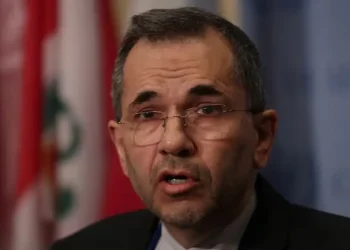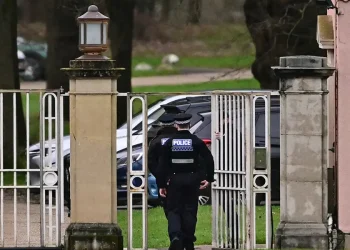Just a couple of weeks ago, a special panel of Georgia state senators convened to study potential laws aimed at keeping firearms safely locked up and out of the hands of children.
A day after a 14-year-old was charged in a deadly shooting at his Georgia high school, that same panel gathered again Thursday to discuss safe gun storage policies. The lawmakers are still talking about the issue because — like many state legislatures across the U.S. — they have been unable to agree in recent years on whether new gun safety measures provide a solution to the all-too-frequent occurrence of mass shootings at schools and public places.
The Georgia school shooting marked the 30th mass killing in the U.S. so far this year, according to a database maintained by media and USA Today in partnership with Northeastern University. At least 127 people have died in those killings.
Under federal law, no one younger than 18 can legally purchase a rifle or other long gun from a licensed firearm dealer. Yet authorities say Colt Gray used a semiautomatic assault-style rifle to kill two students and two teachers at Apalachee High School near Winder, just outside of Atlanta. Nine others were injured.
His father, Colin Gray, was charged Thursday with second-degree murder and involuntary manslaughter in connection with his son’s actions and for “allowing him to possess a weapon,” Georgia Bureau of Investigation Director Chris Hosey said.
Lawmakers, meanwhile, are wrestling with what to do.
“While we sit here and mourn the families and the kids, what are we doing about it?” state Sen. David Lucas, a Democratic member of the study committee, rhetorically asked. “Are we talking? Or are we doing something to try to make sure that legislation is passed in order to give us some kind of relief when it comes to guns?”
Republican state Sen. Frank Ginn, a panel member whose district includes Apalachee High School, said he agreed that “we need to take some action on things.” But Ginn said the focus should on be on mental health.
“Firearms are not the enemy,” Ginn said. “The enemy is the mentally deranged.”
A recent report by the RAND Gun Policy in America Initiative found supportive evidence that safe gun-storage laws reduce firearm injuries and deaths among youth.
A total of 26 states — including Democratic-led California and New York and Republican-led Florida and Texas — have laws requiring gun owners to lock up firearms or penalizing them if a child gains access to an unsecured gun, according Everytown for Gun Safety, a national advocacy group that works to fight gun violence. Georgia is not among them.
But Georgia lawmakers have considered a variety of firearms storage proposals.
In February, Georgia’s Senate passed legislation that sought to promote safe firearm storage by exempting gun safes and other firearm safety devices from state sales tax. A couple weeks later, the House passed legislation to create a state income tax credit of up to $300 for the purchase of gun safes, trigger locks, other firearms security devices or the costs of instructional courses on safe firearms handling.
But neither chamber signed off on the other’s approach.
Republican state Rep. Mark Newton, a lead sponsor of the proposed income tax credit, said Thursday that he hopes senators will take a close look at the plan during the 2025 legislative session.
The Senate Safe Firearms Storage Study Committee is considering proposals for next year.
This year’s rival bills both “had strong support and demonstrated the desire to incentivize gun safety,” Republican state Sen. Kay Kirkpatrick, the sponsor of the Senate version, said Thursday. “I am certain that we will be continuing the conversation next session.”
Meanwhile, Democrats gained little traction on legislation that would have created a misdemeanor crime for negligently failing to secure firearms accessed by children.
However, in a test case that’s being challenged in court, the Democratic-led city of Savannah enacted an ordinance that imposes fines and possibly jail time for people who leave guns inside unlocked cars.
State lawmakers and Georgia Gov. Brian Kemp have approved multiple rounds of school security grants in recent years, totaling $184 million.










 American Dollar Exchange Rate
American Dollar Exchange Rate